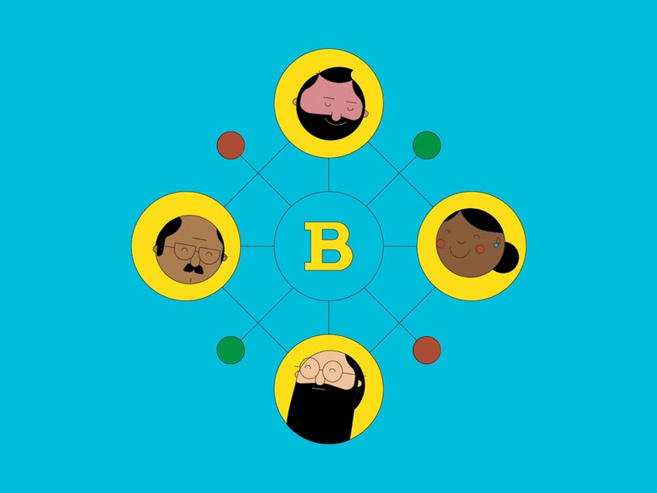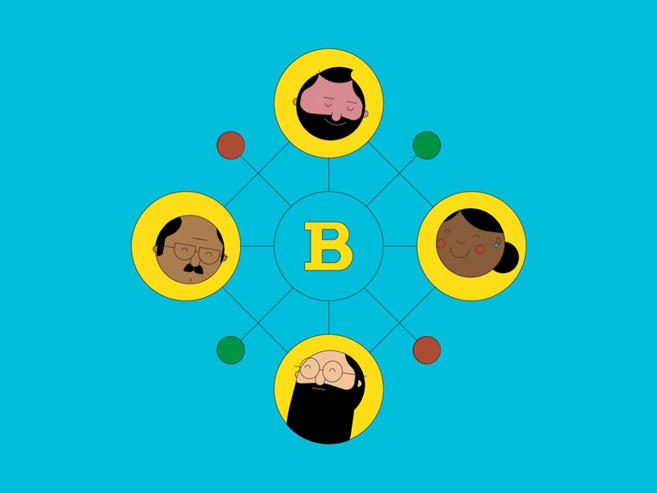
Schieve (pronounced SHE-vee) devised a potential solution: a non-fungible token, or NFT, offered for sale on a blockchain called Tezos. The new owner would receive a .CAD file and a video from the artist, but the actual, physical sculpture would stay in that downtown Reno plaza. The proceeds would raise funds for the city to clean up the whale and preserve it for the public to enjoy. Schieve realized this type of semi-symbolic sale might require some sweetening. So she was contemplating offering benefits, like tagging along on her annual trip to Burning Man with fellow elected officials. (They don’t stay overnight, Schieve adds; she did not intend to jeopardize any future electoral campaigns with drugs and orgies.)
The issuance of an NFT is not, at this point, such a radical thing, even for a government. Cities and states all over have sought at times to forge links to the blockchain. In 2018, Cleveland declared itself Blockland, though the label seems to have waned. Wyoming has set itself up as the premier regulatory haven for cryptocurrency, a label that other states, including Nevada, now seek to challenge. All it takes is a few interested businesspeople and elected officials receptive to “new ideas,” especially those with a cypherpunk ring. That’s not quite what’s happening in Reno. For Schieve, the NFT was a gateway to something else.
An early sign emerged in January, when Mayor Francis Suarez of Miami, a person on a recent tear of throwing out tech-friendly ideas and seeing what sticks, tweeted about turning his city into a “hub for crypto innovation” centered around Bitcoin. Schieve was unsatisfied. “When are you going to become a $LINK marine?” she teased in reply, cryptically to most readers. She was referring to a blockchain platform called Chainlink, perhaps best known for its cult following of “marines” who swarm toward any mention of the technology on social media. Their loyalty is expressed through ranks earned by #HODLing (that is, holding) the platform’s cryptocurrency, called Link. Apparently, the mayor of Reno was a member of the battalion—“link pilled,” in the community’s parlance. “It was really sweet,” Schieve says of the meme invasion her tweet inspired.
Why had she tweeted about Chainlink, of all things? For one thing, she is an investor. In 2016 she attended a hackathon where an attendee convinced her to start dabbling in Bitcoin. She did, but found the speculation dull; it wasn’t exciting to watch the value of her bitcoin go up and down. So she began researching other blockchains and the problems they sought to solve. One day, she was reading about forms of digital identity—think blockchain-enabled driver’s licenses or vaccine cards—and came across some interesting cryptography that Chainlink was using to keep them secure. The project appeared well respected and had a number of high-profile scientists involved. So she started buying Link, among other so-called altcoins. “I like to invest in things that I believe in,” she says. “I’d never buy Dogecoin.”
Schieve has done well for herself with this approach, though she declines to share how well. Her earnings were enough that her brother-in-law, a longtime cryptocurrency enthusiast, “freaked out” when he saw her quip on Twitter, fearing the attention of thieves and hackers. “My sister saw it and said, ‘Bruce wants to kill you,’” she says. Since then, Schieve’s Twitter account has bounced between the ordinary affairs of running a small city—mental health initiatives, historic preservation, teacher appreciation—and, on occasion, promoting Link.
Lire l’article complet sur : www.wired.com



Leave A Comment